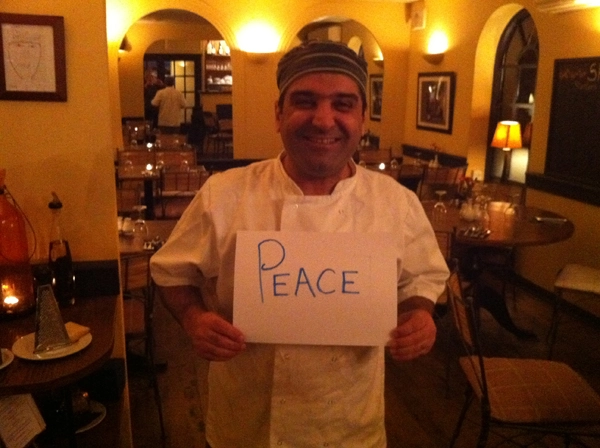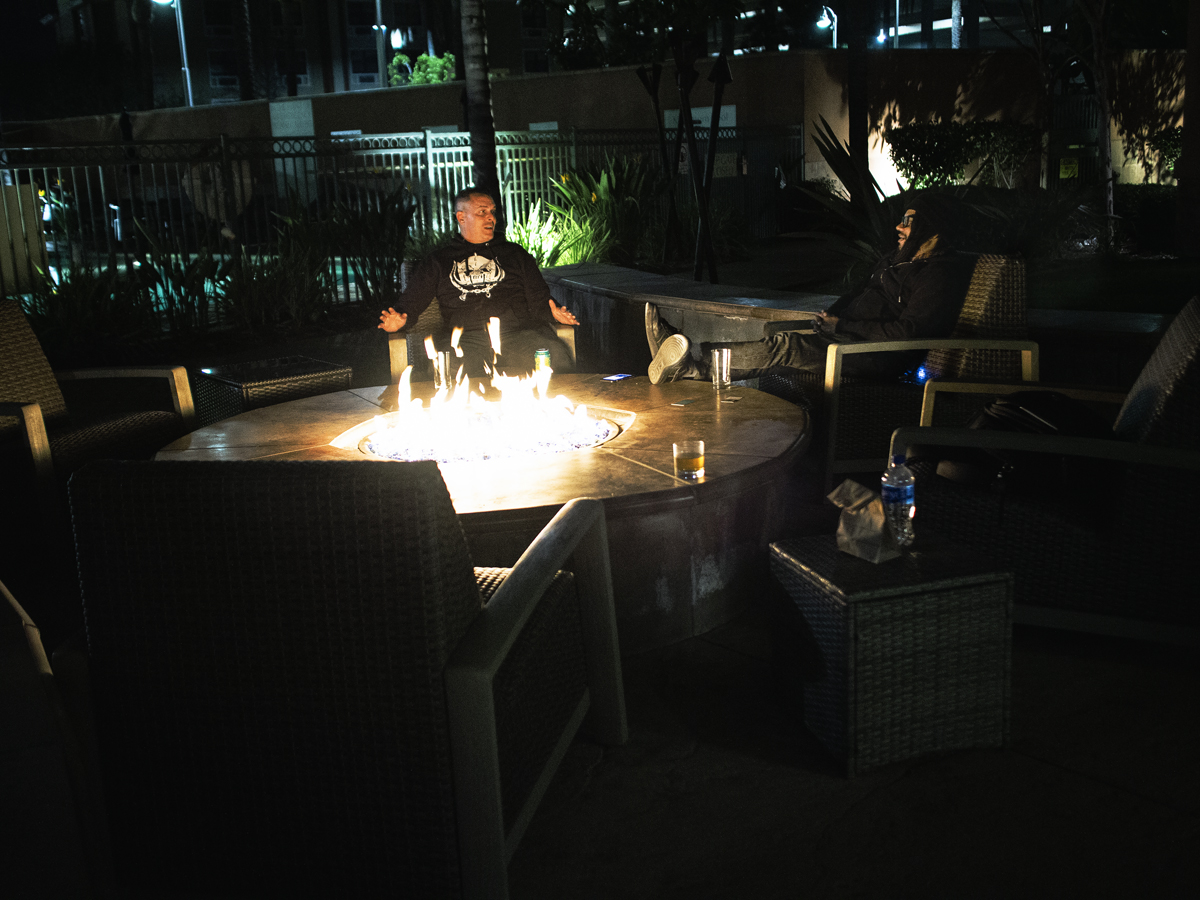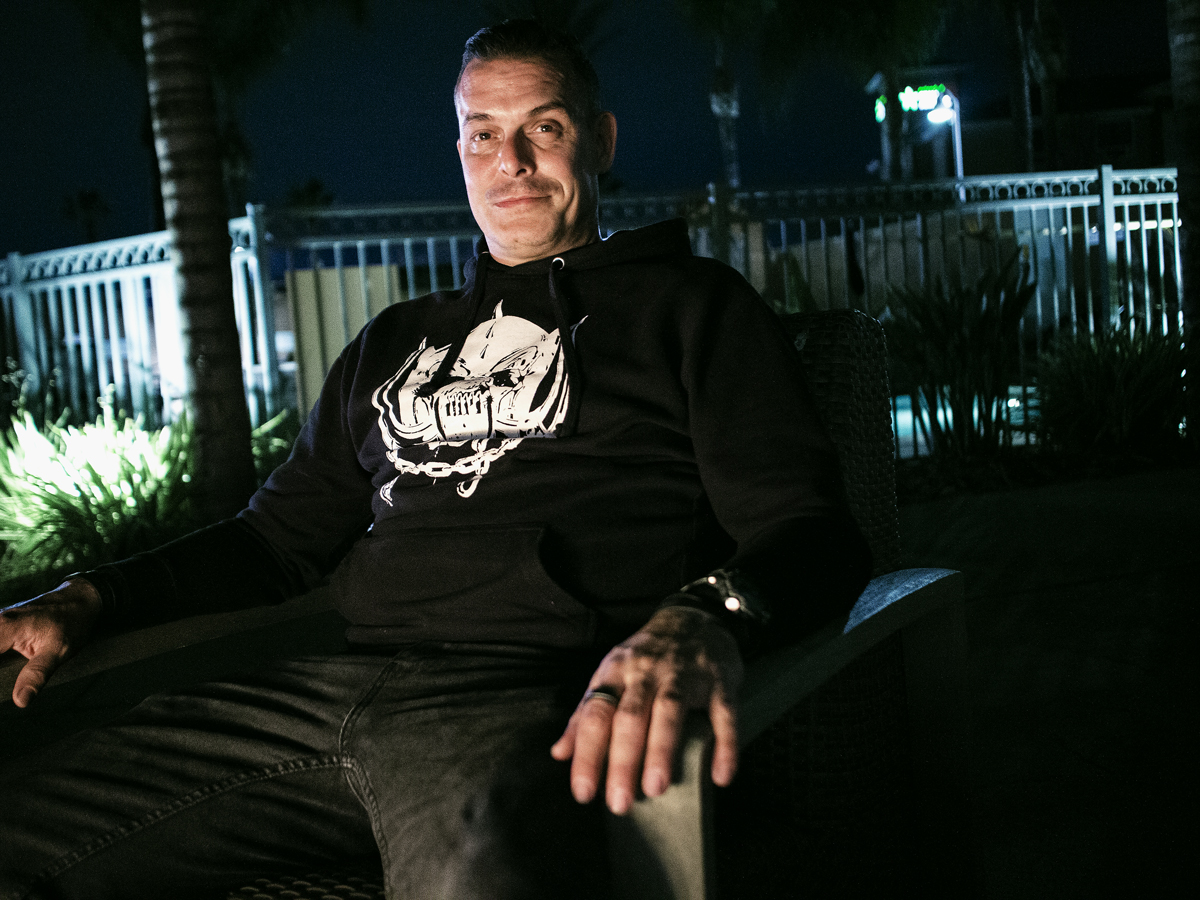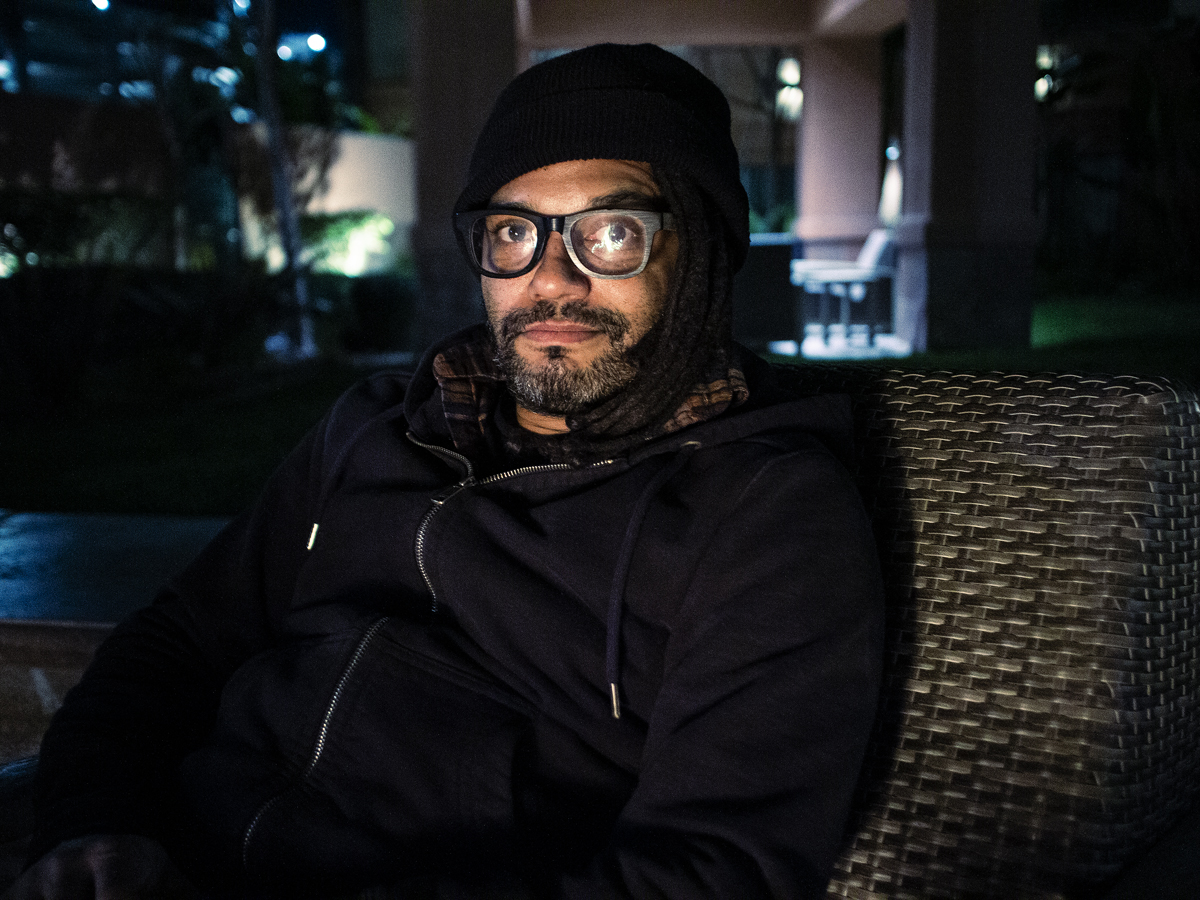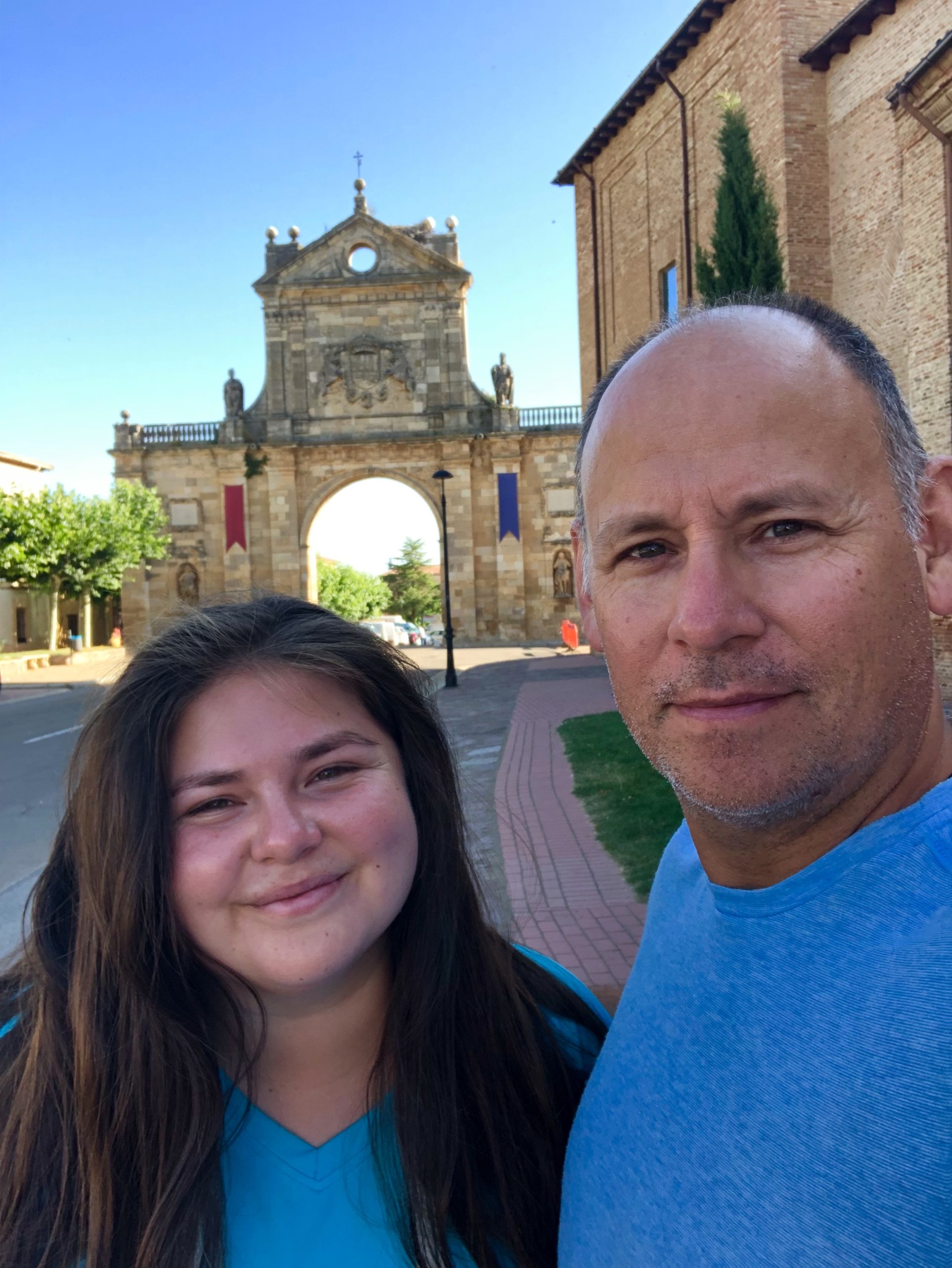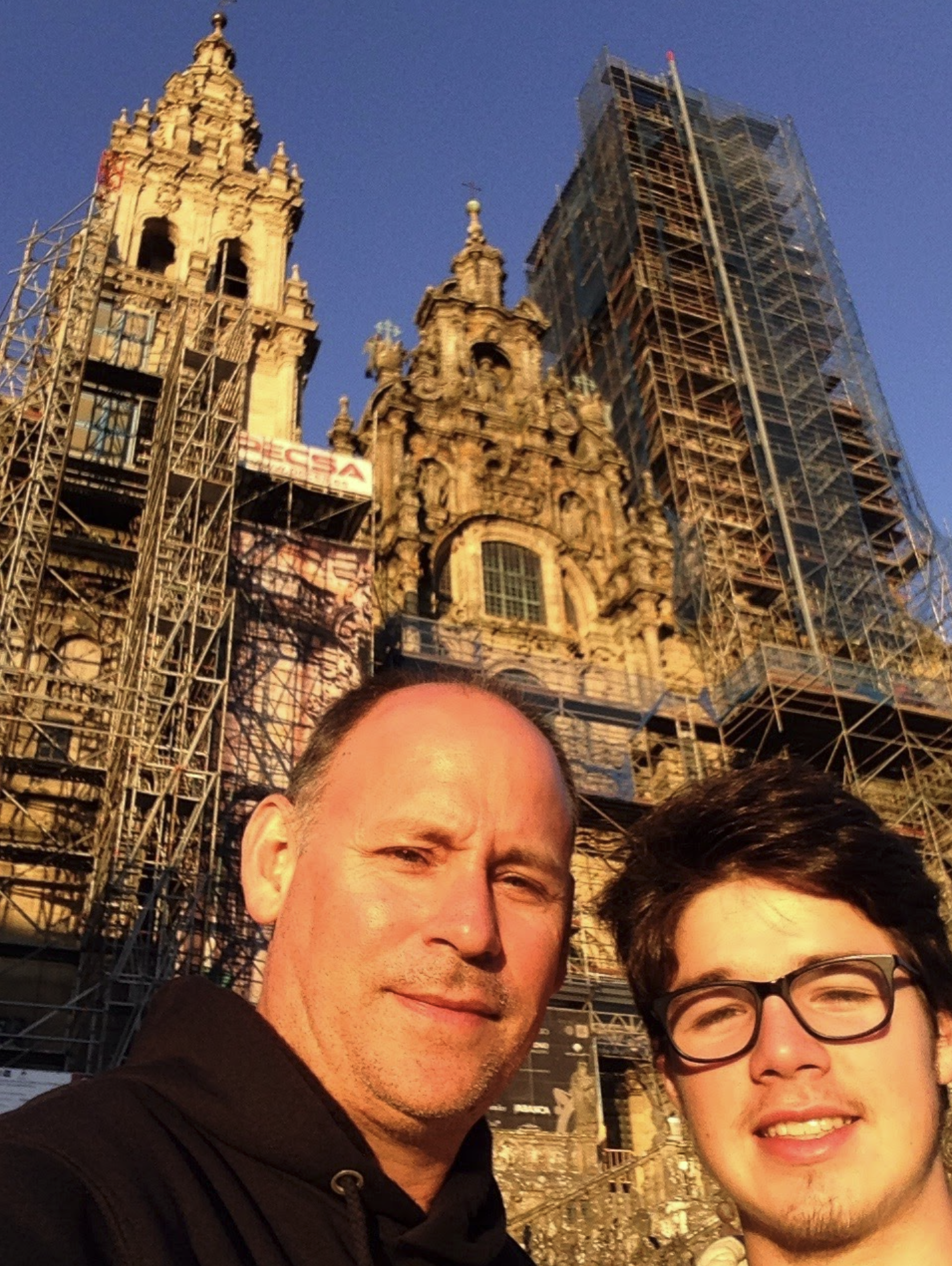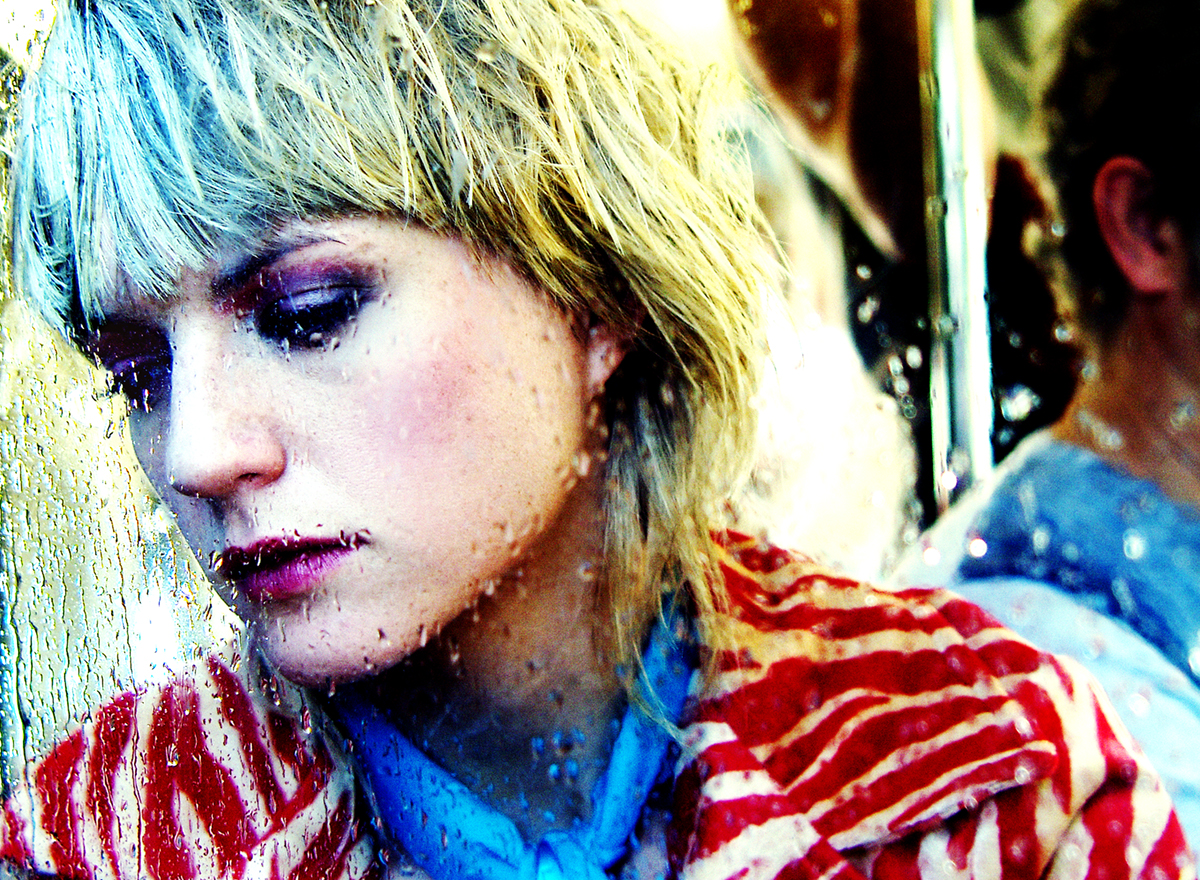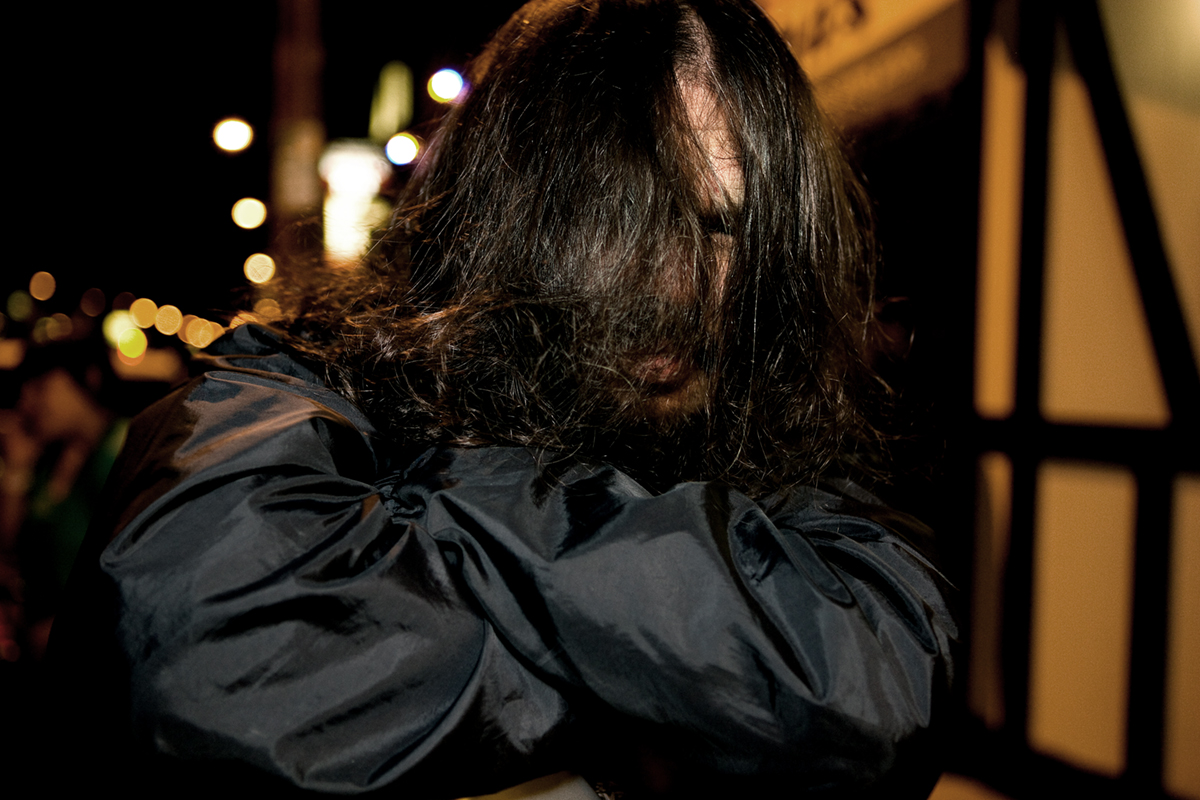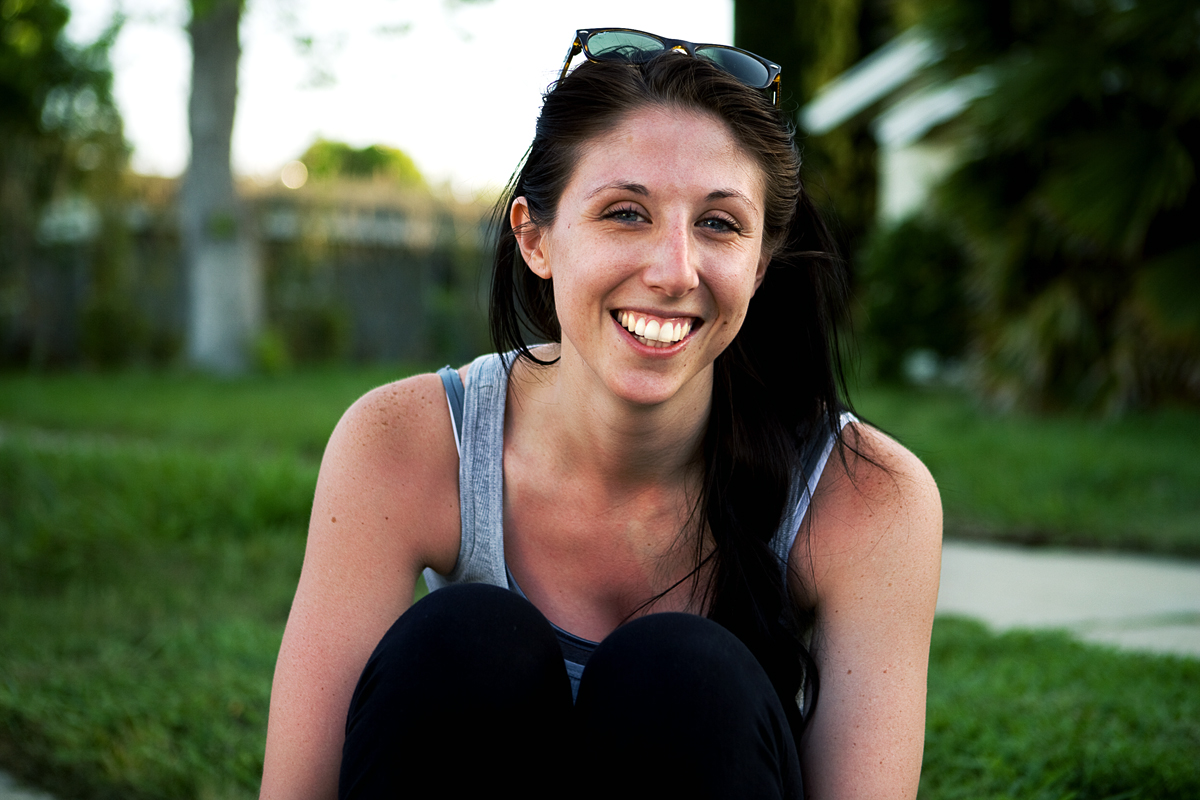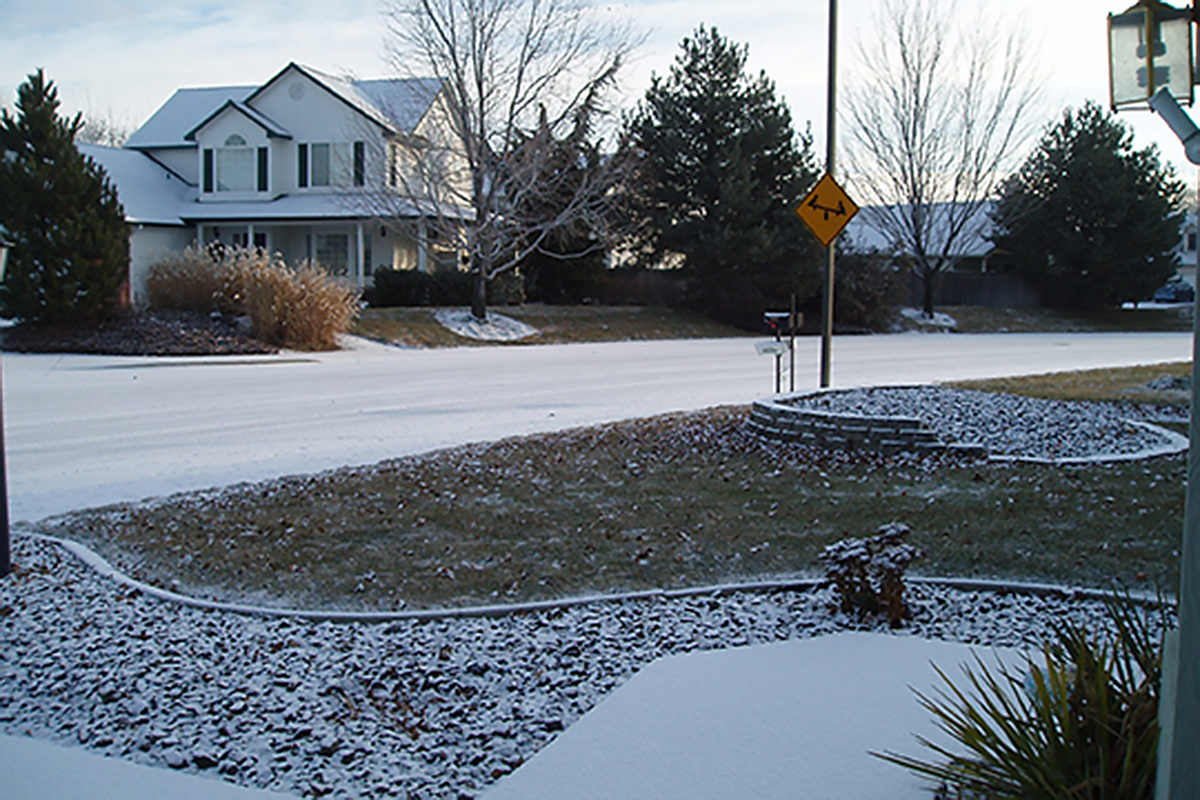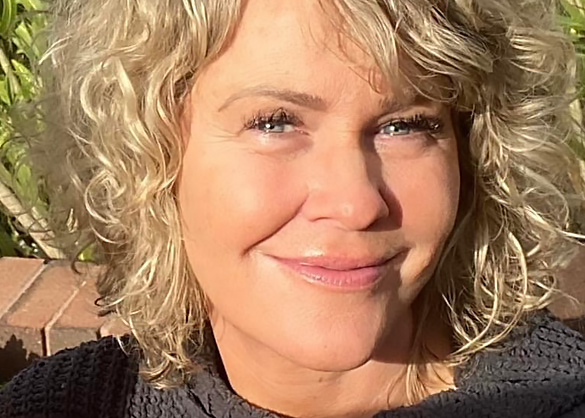“Your question is why?” he further sums me up. “And I say, why care? Yeah. Why care is the question because you already said it yourself. Every single person is completely different. So why care what anybody is? The why is because everybody’s why is so different or so personal to themselves. So, why care?
I don’t mean to make your question sound like it shouldn’t be asked, because it should be asked. But why care Why? It doesn’t make any sense. Because we’re all just living our lives. We’re all just here, you know. You can label anybody.”
Ian points to Dr. Fresh. “He’s a guitar tech. I’m a drum tech.” He gestures toward our surroundings, “or he’s this person, or whatever. But what we see might not be our real personalities. Nothing defines us entirely. So why care? If you have an opinion as to why, you’ll say, well, this is why I think everything is. But it’s not going to affect anybody else in a way that really affects them. And they’re probably not going to change their answer. They’re not going to change their mind about how things are, or why things are. So my answer is why care?”
I’m telling you, Ian is a deep thinker. His perspective gained from plus 20 years front and backstage of many major acts. His thoughts are very profound and relatable to all the crazy stuff that’s going on in the world right now. A refreshing point of view compared to all the misused hate, tolerance, and understanding. Words that began as good motivations that are slowly becoming weaponized and argumentative. Yet here we are, a bunch of dudes who don’t even know each other sitting down and managing to see the value of one another—as I said, I love these guys.
We talked about why people get so intolerant and looked at the notion of it’s OK to dislike. But in that outlook, the importance of integrity and the rules of empathy toward others grew.
Ian continues, “if we go out there in the world, and I’m learning this lesson hard, it’s like, no, that person really sucks. Yeah, you know, but they’ve got their own life going on. There’s people that love them of course, but for me, they’re toxic and I want nothing to do with them. Yeah, ever.
But they’re still human. Yeah, you might hate every single thing about that person. And then if you saw them about to get, like, decapitated. Yeah, like a windmill has its pieces stripped off of it by the wind and then coming at they’re neck. You might still actually tackle them so that that thing goes by and they’re still alive because we’re empathic in the way that we would want to save a life, even if we hate that life.
I try to be a decent human being,” Ian tells me, “you know, like you guys have integrity,” he points to the doctor and me. “You’re not going to bag on somebody else. Now we’re getting into culture. You’re getting how you treat others. Sure. How do you perceive the bullshit? How do you not go back to bullshit stuff? Yeah, it’s happening everywhere. And you find that those people that do what you do. There’s a range of people who will follow those rules and not follow those rules. And that’s what happens with us to where we feel this way and where I’m 20 years in, and those people exist. People that will totally, like, make everything that they’re doing about themselves and not about the artists and not about their product. But you learn to kind of read the artist going, Oh, I’m stressed right now, and you learn to look back and make sure they’re comfortable as fuck. Yeah. When they just go, hey, here we are, and that’s my guy and blah blah blah. To hear them say, I like you. Because for me, it’s about human connection. It’s about how you relate to people. Can you sort of take their experiences and make them something that makes you go, Oh, if that guy had that experience and I can relate that to what I do, to what my daily life is like, or to what my goals are.
